In Pictures| BESC organises Lecture on Nation building through ISRO and its Chandrayaan-3
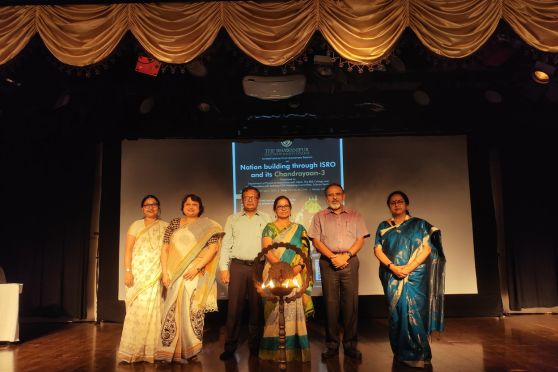

The Bhawanipur Education Society College (BESC) hosted a compelling lecture cum awareness session on Nation building through ISRO and its Chandrayaan-3 held on the 29th day of April 2024. The event was attended by over 200 participants comprising students, teachers, and laboratory staff members of the Science Section of The Bhawanipur Education Society College and nearby colleges.
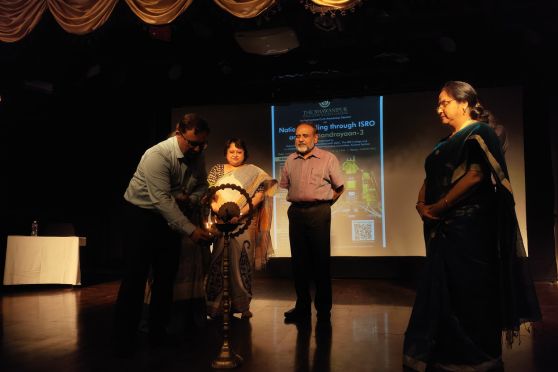
The program began with an introduction by Ms. Sukti Moitra, Associate Professor in the Department of Physics. Thereafter, the Vice Principal, of Science, Dr. Pinki Saha Sardar, and the Rector and Dean of Students’ Affairs, Mr. Dilip Shah, respectively, provided their personal views on such scientific knowledge disseminating deliberation.
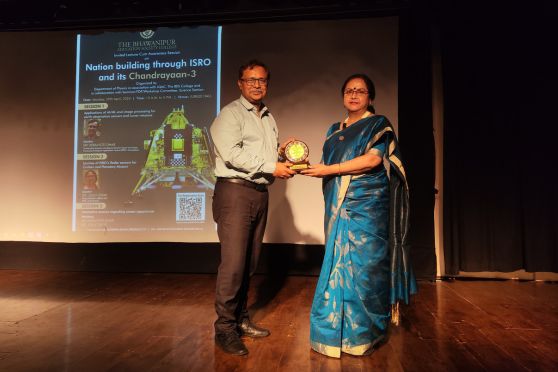
The entire day was spent listening to the rich experience and expertise of two leading scientists- Sri Debajyoti Dhar, Outstanding Scientist and Deputy Director, and Dr. Jolly Dhar, Group Director of Microwave Sensors Receiver Group both from Space Applications Center (SAC), ISRO Ahmedabad Centre from Indian Space Research Organization (ISRO).
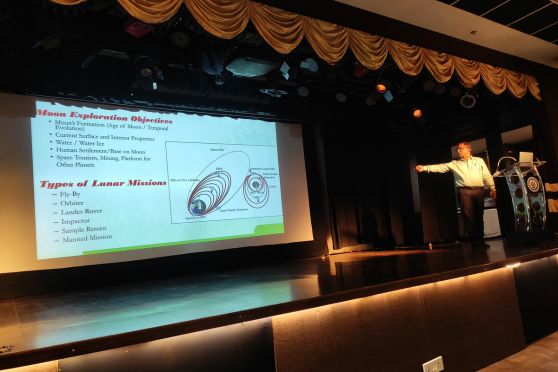
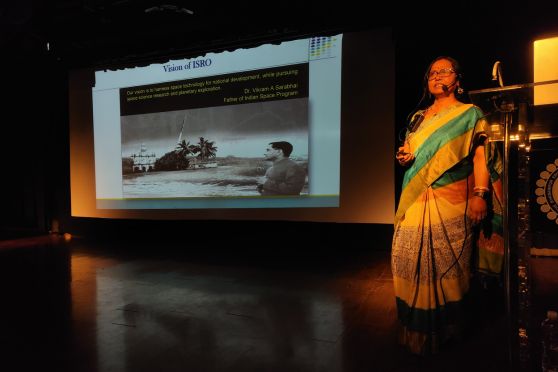
Sri Debajyoti Dhar and Dr. Jolly Dhar spoke before the huge gathering about their exemplary leadership in the Chandrayaan-3 mission that, last year, hit the headlines across global newspapers and welcomed huge praise across countries, small and big, and also how it went on to become an outstanding achievement in the history of the moon landing.

From the common man to the wealthy tycoon, all erupted in joy as India became the fourth nation to land on the moon and the first country ever to land on the moon’s south pole.
In the first session, Sri Debojyoti Dhar shared his experience on India's Moon Mission: Chandrayaan-3 and Computer Vision as AI/ML/DL applications. He explained the Chandrayaan-1 and Chandrayaan-2 missions through the associated instruments and images to create a knowledge base and thereafter, emphasized the Chandrayaan-3. Different techniques employed for soft landing were explained by him. To engage the students, some video clips were also presented related to the deployment of the Pragyan Rover.
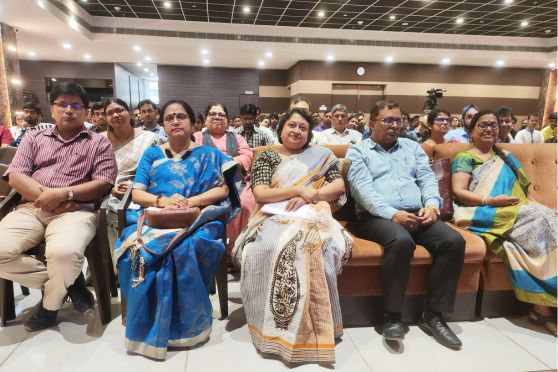
In addition to this, he appreciated the fact that all the instruments were designed and fabricated in India highlighting our country’s potential to excel indigenously. He, then, digressed a bit and discussed a deep learning model known as Generative Adversarial Network (GAN) which is essentially used to recognise wetlands at a higher resolution based on missing data reconstruction.
He further delved into how AI is used for image processing, deep learning concepts for image generation, and various techniques used for Chandrayaan- 3.
In the second session, Dr. Jolly Dhar elaborated on the ‘Journey of ISRO’s radar session for Planetary and Civilian Mission.’ She discussed at length the multiple dimensions of ISRO’s space programs, the Synthetic Aperture Radar (SAR), and a consequent build-up of the Earth Observation Space-borne SAR made in India. Further, she iterated on the collaboration of ISRO with NASA on SAR for natural ecosystems and coastal regions for oceanographic studies.
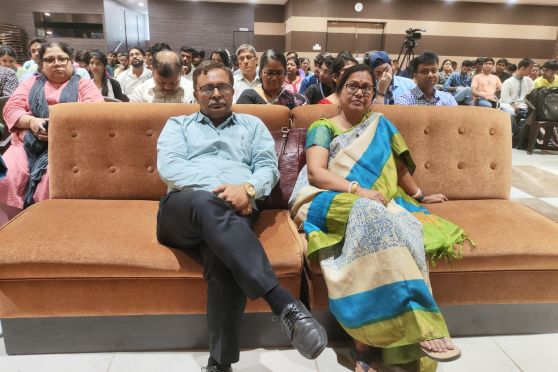
She concluded her session by giving a message to the student community- ‘Strive to learn and excel, success will follow, irrespective of your gender.’

The third and final session was a Q&A session, where both speakers interacted directly with the audience. The students, especially, were inquisitive enough to ask nuanced and thoughtful questions to the resource persons who, with great humour and patience, answered each and every query to the audience’s delight.
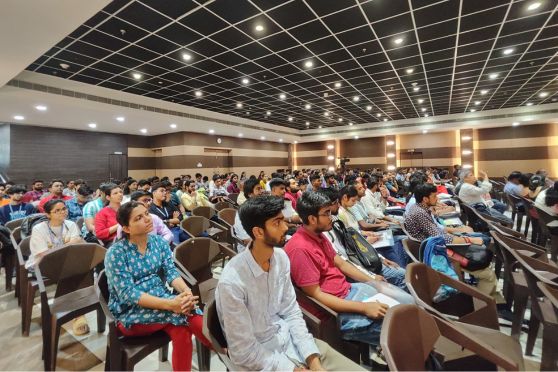
The speakers talked at great length about the career and job opportunities at ISRO and also broadly explained the recruitment process at ISRO. With this, the program ended on a joyful note, inspiring many to pursue careers in science and technology. The session left a lasting impression on the audience, igniting a sense of pride and optimism about India’s future in space exploration and its impact on nation-building.
The entire program was coordinated by Dr. Suparna Basak, Associate Professor in the Department of Physics, and Dr. Abir Bhattacharyya, Assistant Professor, Department of Physics in association with the IQAC of the BESC and collaboration with the Seminar/FDP/Workshop Committee of the Science Section, the BESC.